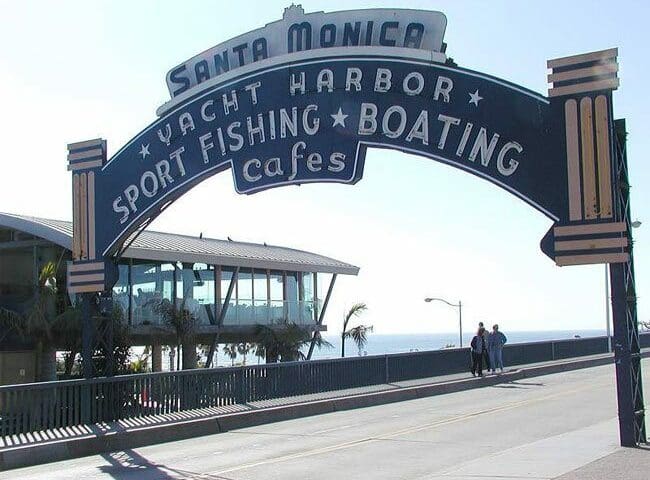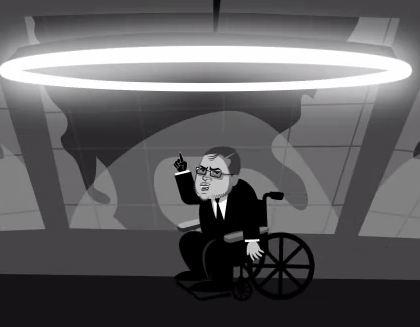

California’s second-largest city has a progressive mayor, former Democratic U.S. House member Bob Filner — who beat his Republican rival by three points in November.
The 70-year old Filner spent 20 years in Congress. A reliable and articulate liberal – with high marks on his AFL-CIO, Americans for Democratic Action and Sierra Club scorecards – he’s a founding member of the Congressional Progressive Caucus and was a Freedom Rider during the early 1960s civil rights movement, spending two months in jail for “disturbing the peace and inciting a riot.”
Among his first actions as mayor, Filner took on the powerful San Diego Gas and Electric (SDG&E), accusing the investor-owned utility of failing in its commitment to alternative energy. He has also promised to pay more attention to the city’s neighborhoods, which many residents believe have been shortchanged by civic officials who are obsessed with developments downtown and in the Gaslamp Quarter.
» Read more about: San Diego: Republican City Gets Progressive Mayor »


New Year’s resolutions are a bitch. 
You know you should eat more veggies, exercise regularly and do your bit to reduce suffering in the world. You want to learn Spanish (finally), take that oft-postponed Alaskan cruise and work through your co-dependency issues with Facebook. You’re convinced that meditation will reduce your stress, but the mere thought of fitting one more activity into your over-packed schedule only leaves you feeling more stressed out.
Shooting for the moon with our New Year’s resolutions — No more sugar! Run three miles a day! Be kind to your enemies! — and then falling short is a fast track to aggravation, self-loathing and the joyless consumption of massive quantities of week-old fruitcake.
Bite-sized goals are easier to digest. Climbing stairs instead of taking elevators or choosing a “bad” parking space to take a brisk walk might not please your aerobics trainer,


I spent this weekend as a Santa Monica resident for the first time in seven years. Interesting!
Technically my new digs are across the street, the dividing line between Santa Monica and Mar Vista. Coincidentally it’s the same area that I wrote about in my second murder mystery Rip-Off, the airport location of a clusterfuck shootout that shames my hero, Detective Dave Mason of the Santa Monica Police Department.
I’ve been in the city off and on, but as a visitor in these last few years. Now I have a base. My dog Lily and will be here from time to time in an effort to develop a plot for my next Dave Mason mystery.
The contrasts of Santa Monica fascinate me. I drive down Broadway and see the dark doorway of the union hall where I used to work. Three homeless men are huddled there.
» Read more about: Back to the Beach: An Activist Returns to Town »


UNITE HERE!-represented workers at Pleasanton, California’s Castlewood Country Club were locked out for two years before an NLRB administrative law judge finally ruled in their favor; Castlewood was on the hook for $1.8 million in back wages and benefits due to management’s refusal to bargain in good faith and animus towards the union. Overjoyed, 45 of 61 locked out Castlewood employees returned to their jobs. There’s just one problem: they haven’t gotten their back wages yet.
The NLRB’s ruling requires Castlewood management to pay back wages within 28 days or make some other settlement with workers, but as of late December, neither had occured. Castlewood management does have the opportunity to appeal the NLRB ruling, but lacks the option of total inaction. The failure to act had workers returning to a now-familiar mode of protest on the Thursday before Christmas. The East Bay Express was on the scene:
About 30 union members gathered Thursday morning outside Castlewood’s offices to urge management to pay up.
» Read more about: Teed-Off Workers Protest at Golf Course »


The cliff that America sidestepped with time to spare in 2012 was the one on the nation’s docks. On Friday, harbor operators and shippers reached an agreement with the union representing nearly 15,000 longshoremen on the East and Gulf coasts. The key point holding up the signing of a new contract was whether dockworkers would continue to receive royalties on the containers they hoisted on and off ships. With that issue resolved, apparently to the workers’ satisfaction, their union agreed to call off a year-end strike pending the resolution of less contentious points, and the nation was spared a work stoppage that would have slowed imports and exports to a relative trickle.
Had the workers walked, the attacks on them would be easy to imagine. Dockworkers are among this country’s best-paid blue-collar workers; many make more than $100,000 a year. They’re sitting ducks for union critics and are objects of wonderment for many Americans who can’t fathom how nonprofessional work can pay so much.
» Read more about: New Longshore Contract: Racing to the Top »


As a nation, we’ve already given countless billions of dollars in gifts to the one percent in the form of tax cuts, loopholes and corporate subsidies. If you think that’s not enough, here’s a list of more personal gifts you can buy for your favorite One Percenter.
In the 21st century, even the lowliest One Percenter can surround himself or herself with personal assistants, stylists and specialty chefs. For a truly unique experience, add a personal tanning butler to his or her entourage on a $3000/night booking at the Ritz Carlton. Even the dullest One Percenter will take a shining to this gift. The tanning butler will help apply sunbathing lotion and spritz you with Evian water while you sunbathe.
If your one percent friend is an expecting celeb,
» Read more about: Regifting for the Few Who Have Everything »


 Most job seekers take care to scrub evidence of last night’s party from their social media profiles, but the employment consequences of more nuanced online interactions are still being determined. Just before the Christmas holiday, the National Labor Relations Board issued a decision ordering the reinstatement of five workers who were fired for responding to a co-worker’s criticism on Facebook. The decision goes some way to establish Facebook posts as protected under the National Labor Relations Act, and may discourage employers from basing personnel decisions on social media behavior in the future.
Most job seekers take care to scrub evidence of last night’s party from their social media profiles, but the employment consequences of more nuanced online interactions are still being determined. Just before the Christmas holiday, the National Labor Relations Board issued a decision ordering the reinstatement of five workers who were fired for responding to a co-worker’s criticism on Facebook. The decision goes some way to establish Facebook posts as protected under the National Labor Relations Act, and may discourage employers from basing personnel decisions on social media behavior in the future.
JD Supra reports on the case:
The case stemmed from a message that an employee of a nonprofit organization posted on Facebook outside of work hours. After Lydia Cruz-Moore told Marianna Cole-Rivera that she planned to discuss her concerns about employee performance with the Executive Director of Hispanics United of Buffalo,
» Read more about: NLRB Likes Facebook Defense of Fired Workers »


» Read more about: You Can’t Always Get What You Want: Post-Cliff Reactions »


The agreement passed last night is a breakthrough in beginning to restore tax fairness and achieves some key goals of working families. It does not cut Social Security, Medicare or Medicaid benefits. It raises more than $700 billion over 10 years, including interest savings, by ending the Bush income tax cuts for families making more than $450,000 a year. And in recognition of the continuing jobs crisis, it extends unemployment benefits for a year. A strong message from voters and a relentless echo from grassroots activists over the last six weeks helped get us this far.
But lawmakers should have listened even better. The deal extends the Bush tax cuts for families earning between $250,000 and $450,000 a year and makes permanent Bush estate tax cuts exempting estates valued up to $5 million from any tax. These concessions amount to over $200 billion in additional tax cuts for the 2 percent.

